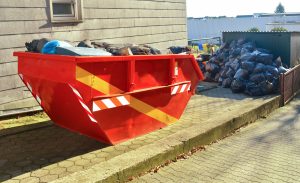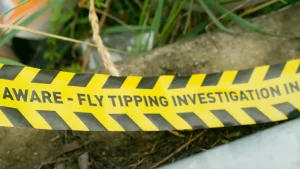Hiring a skip bin can be essential to home renovations, spring clean-outs, or large event management. Whether you are a novice or have experience, it can be a daunting task filled with questions and confusion. But don’t worry, we’re here to guide you through the process to ensure a smooth and stress-free skip hire experience.
In this blog post, we aim to take the mystery out of the skip hire process. We will delve into the critical aspects of preparing for your skip delivery, introduce practical techniques for optimising loading space while ensuring safety, and help you navigate the often complex regulations around skip hire in the UK. By understanding these components, you’ll be well-equipped to make your skip hire experience as easy and efficient as possible.
Stay tuned as we unpack the essentials and provide top tips to transform your skip hire journey from stressful to seamless. Let’s dive in!
Preparing for Skip Delivery: What You Need to Know
When hiring a skip, preparation is key to ensure a smooth experience. The first step in this process involves understanding your waste and choosing the appropriate skip size. Overestimating can lead to unnecessary expenditure, while underestimating can result in insufficient space, requiring multiple collections and thus escalating costs.
-
Understanding Your Waste: Determining Skip Size
- Estimating the volume of waste: Begin by assessing the amount of waste you plan to dispose of. Are you clearing a small room or undertaking a full home renovation? Answering such questions can help you estimate the volume of waste.
- Choosing the right size of skip: Skip bins come in various sizes, commonly measured in cubic yards. Match your waste volume estimation to an appropriately sized skip to ensure it suits your requirements.
-
Choosing the Right Skip Hire Company
- Factors to consider: Consider factors such as pricing, availability, waste handling practices, and customer service. It is crucial to hire a reputable company that provides clear and upfront pricing and handles waste in an environmentally responsible manner.
- Checking reviews and service terms: Before finalising a company, it’s a good idea to check online reviews and thoroughly understand their service terms to avoid hidden charges or policy-related surprises.
-
Planning for Skip Placement
- Choosing a suitable location: Your skip should be placed in a secure, easily accessible location that does not obstruct traffic or pedestrians. Also, consider whether the delivery truck can easily access the spot.
- Informing neighbours: If the skip is to be placed in a shared space or could potentially cause any inconvenience to your neighbours, it’s good etiquette to inform them beforehand.
Effective Loading Techniques
Once you’ve prepared for your skip delivery and chosen the right size and placement, the next step involves loading the skip. Loading a skip might seem like a straightforward task, but a methodical and well-planned approach can help you utilise the skip’s space more effectively, ensuring you get the most out of your hire.
Firstly, it’s vital to understand the importance of safe and efficient loading. This is not just about maximising the use of your rented space, but also about ensuring that the skip is safe for transportation. Overfilling a skip or placing items haphazardly can lead to spillage or accidents, posing a risk to both people and property.
When it comes to maximising space, it’s about strategically placing items in the skip. Start with flat items, like wooden planks or old doors, as a base. On top of these, you can place bulky items that can’t be broken down. Smaller items or breakable items like rubble, soil, or general waste should be added last, filling up the spaces left.
Permits and Legal Considerations
The legal aspect of skip hire is often one of the most complex parts of the process, but it is essential to ensure that you adhere to all regulations and avoid any unexpected fines or penalties.
Firstly, it’s crucial to understand your local regulations. Each council in the UK has slightly different rules regarding skip hire. Common considerations include how long the skip can be left in a public place, what type of waste can be disposed of, and any restrictions on skip placement. Therefore, it’s worth familiarising yourself with the guidelines in your area to ensure you don’t accidentally contravene any local bylaws.
In many cases, you may need to obtain a skip permit, particularly if the skip will be placed on a public road. The requirements for this can vary from one local authority to another, so it’s essential to check with your local council. Typically, the skip hire company can handle this process on your behalf, but it’s always advisable to verify this when making your booking.
Finally, it’s worth noting that there are also environmental considerations and legal obligations associated with skip hire. It’s not just about removing waste from your property; you also need to ensure it’s disposed of responsibly.
The UK law is strict about disposing of waste properly, and as the holder of the waste, you are responsible for ensuring that your waste is handled correctly. That’s why it’s vital to choose a reputable skip hire company that adheres to waste regulations and promotes recycling wherever possible.
Conclusion
Skip hire need not be a stressful or complicated process. With the right preparation, an effective loading strategy, and a good understanding of the permits and regulations involved, you can enjoy a smooth and efficient skip hire experience.
By understanding your waste and choosing the right skip size, selecting a reliable skip hire company, and planning the placement of your skip carefully, you can ensure the process runs smoothly from start to finish. Maximising space by loading strategically not only makes the most of your hired skip but also ensures safety during transportation.
Finally, remember that understanding local regulations and the legal considerations involved in skip hire is crucial. It helps you avoid unexpected fines and ensures you’re doing your bit for the environment by disposing of waste responsibly.
Following these top tips can ensure your skip hire experience is both smooth and stress-free, helping you focus on the task at hand, whether it’s a home renovation, a big clear-out, or managing waste from a large event. So, the next time you need to hire a skip, remember these tips and enjoy a hassle-free experience.








